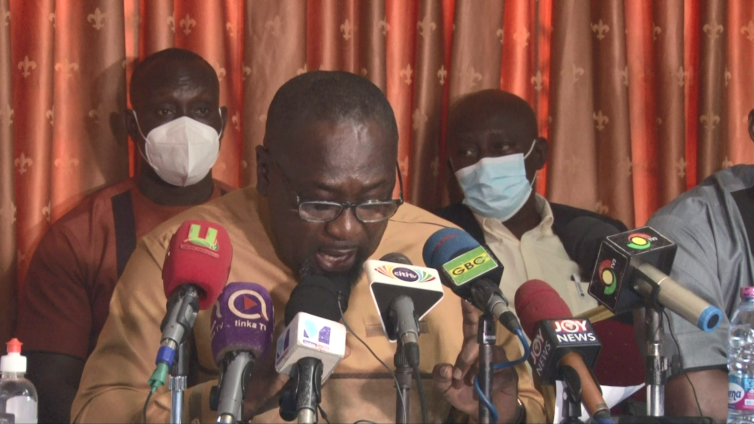Some stakeholders in the import and export industry have described Ghana’s skyrocketing arbitrary shipping charges as a state of emergency.
Mincing no words, members of the Ghana Institute of Freight Forwarders, the Ghana Union of Traders Association (GUTA), and other business bodies said the country will find itself in crisis if the government does not intervene to remedy the situation.
At a media briefing in Tema, President of the Ghana Institute of Freight Forwarders, Edward Akrong itemized some areas that add to the cost of doing business in a country that already relies heavily on imports.
According to him, administrative fees, day count charges for container free days, exchange rate differentials, container deposits and blacklisting of agents result in high cost of business transaction.
Again, inappropriate fees and charges borne by importers, additional charges for use of online payments, coded invoices among others, did not help the business community.
Backing his argument, Mr. Akrong said Section 44 (5) of the Interpretation Act, 2009 ACT 729 settles the confusion on how days should be counted with respect to container free days but the actions of shipping lines contradict the law with implementing agencies such as the Ghana Shippers Authority, looking on helplessly.
“What is the justification for a shipping line agent to begin counting free days for the trader when the box is not at the disposal of the trader’s agent?”
“The shipping lines intentionally begin the count sometimes when vessels have not fully discharged their cargo without recourse to the law,” he added.
Currently, Ghana finds itself in a situation where shipping lines are alleged to be holding the country to ransom with surcharges.
Although, there have been several engagements with state agencies, the tussle with the lines has been dragging on for decades.
Touching on this, Mr. Edward Akrong indicated that the country has the highest port charges in the sub-region.
“Charges in this country are outrageous. In Nigeria, there is an armed wing of their Shipping Council that descends on any shipping line that does rent-seeking or breaches the law,” he explained.
He blamed the development on the lack of sheer will on the part of authorities.
On his part, the President of the Ghana Union of Traders Association, Dr. Joseph Obeng said businesses are losing their capital daily due to these charges.
“Imbedded in the freight charges are the operational cost and we are not going to allow the lines to duplicate the charges. This is a sovereign nation and these multinationals must be controlled.
"A trader was to pay $15,000.00 as freight charges for 40-footer container on Tuesday but this had shot up to $20,000.00 by Wednesday.
"For the business community, any additional charges incurred are passed on to the final consumer hence raising the cost of living," he added.
Latest Stories
-
Town council in Canada at standstill over refusal to take King’s oath
23 mins -
Trump picks Pam Bondi as attorney general after Matt Gaetz withdraws
35 mins -
Providing quality seeds to farmers is first step towards achieving food security in Ghana
46 mins -
Kenya’s president cancels major deals with Adani Group
2 hours -
COP29: Africa urged to invest in youth to lead fight against climate change
2 hours -
How Kenya’s evangelical president has fallen out with churches
2 hours -
‘Restoring forests or ravaging Ghana’s green heritage?’ – Coalition questions Akufo-Addo’s COP 29 claims
2 hours -
Ensuring peaceful elections: A call for justice and fairness in Ghana
3 hours -
Give direct access to Global Health Fund – Civil Society calls allocations
4 hours -
Trudeau plays Santa with seasonal tax break
4 hours -
Prince Harry jokes in tattoo sketch for Invictus
4 hours -
Akufo-Addo commissions 200MW plant to boost economic growth
4 hours -
Smallholder farmers to make use of Ghana Commodity Exchange
5 hours -
I want to focus more on my education – Chidimma Adetshina quits pageantry
5 hours -
Priest replaced after Sabrina Carpenter shoots music video in his church
5 hours

